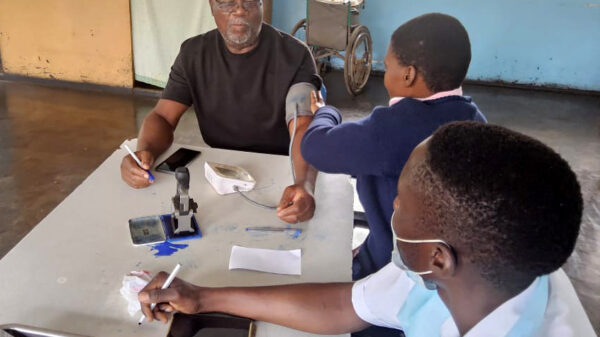They work on different initiatives and live thousands of kilometers away from each other, but they maintain a great common goal: improving the economic opportunities of the people in their cities. He Local Innovators Program 2022 is the great fan that brings them together and, on this occasion, Iván, Irma, Gustavo, Estefanía and Karina They share their challenges and reflections on the experience.
From Bogotá (Colombia), Cota (Colombia), Torreón (Mexico) and Junín (Argentina), the teams presented their initiatives at the Inspiration Tables, a key stage of the program, to a group of specialists in innovation and systemic thinking. And although they maintain different objectives according to their particular realities, municipal leaders and social entrepreneurs from each community agreed in valuing the learning obtained so far with AYNI.
The importance of labor inclusion
The projects in the Buenos Aires city of Junín and the Colombian capital maintain a coincidence: both work to generate greater job opportunities for historically excluded populations.
In the case of Bogotá, Ivan Felipe Moreno, from the National Planning Department; Marcela Guzman Castro, from the social entrepreneurship León Veracruz Consultores; and Juan Diego Moreno, from the Más Colombia Leaders Organization, came together to generate strategies that can improve the quality of life and the work reality of the recycling population in the metropolis.
Thousands of kilometers to the south, in Junín (Argentina) they seek to generate greater inclusion of people with disabilities in productive and labor spheres. “From a very young age I participated and participate in organizations (of this type) because I understand that the only way for our rights to be recognized is to fight for them,” he says. Karina Sánchez, in charge of the Directorate of People with Disabilities in this city inhabited by nearly 100,000 people.
Entendiendo que “el trabajo dignifica”, la líder municipal trabaja en el proyecto de oportunidades junto con Claudio Garcia, from the Families United Association for Social Inclusion (FUPIS).
Socio-spatial integration between cities
Gustavo Gonzalo Rodríguez de la Vega and Estefanía Rodríguez unieron esfuerzos para crear una mayor conexión social y espacial de barrios ejidales en la periferia de Torreón (Coahuila, México). En especial, San Agustín es un polígono de 58 hectáreas habitado por casi 1.600 personas que se encuentra casi desconectado del resto de la ciudad.
“The lack of integration generates multiple problems that directly impact the inhabitants of the entire ejido, especially the most disadvantaged. The lack of adequate and well-planned public spaces leads to the generation of greater crime, the lack of social cohesion, the generation of a community of origin, and the lack of citizen participation. Trade exchanges of goods and services are poorly impacted by the lack of planning,” argue the leaders of the initiative.
Pointing out the possible consequences of not addressing the community's urban challenges, the Torreón team points to systemic innovation techniques and change networks to achieve impactful changes. “Throughout this process we have learned that we must get to the root of the problem to find specific solutions,” said architect Estefania Rodríguez.
Agroinputs and indigenous communities
In the Cundinamarca municipality of Cota, in central Colombia, peasant and indigenous communities denounce that the use of agroinputs harms their traditional productive activities. Faced with this problem, they assure that economic opportunities are suffering and that the sense of uprooting increases.
In search of solutions, Irma Jineth Robles Neuque, from the social enterprise La Cabaña del Castor, works together with Ingrid Dianey Gómez Neuque, Ethnic Liaisons official in the local government. The objective pursued is, in essence, to produce and offer agroecological inputs for the development of rural and urban crops in harmony with the environment.
“I am very grateful for the learning process with the systems thinking model. With all our hearts, we hope that the problems worked on in the different cities can have a stable solution over time thanks to the Local Innovators Program,” said Irma, who is also part of the Mhuysqa indigenous reservation.
Main image: aerial view of Torreón, Mexico.
